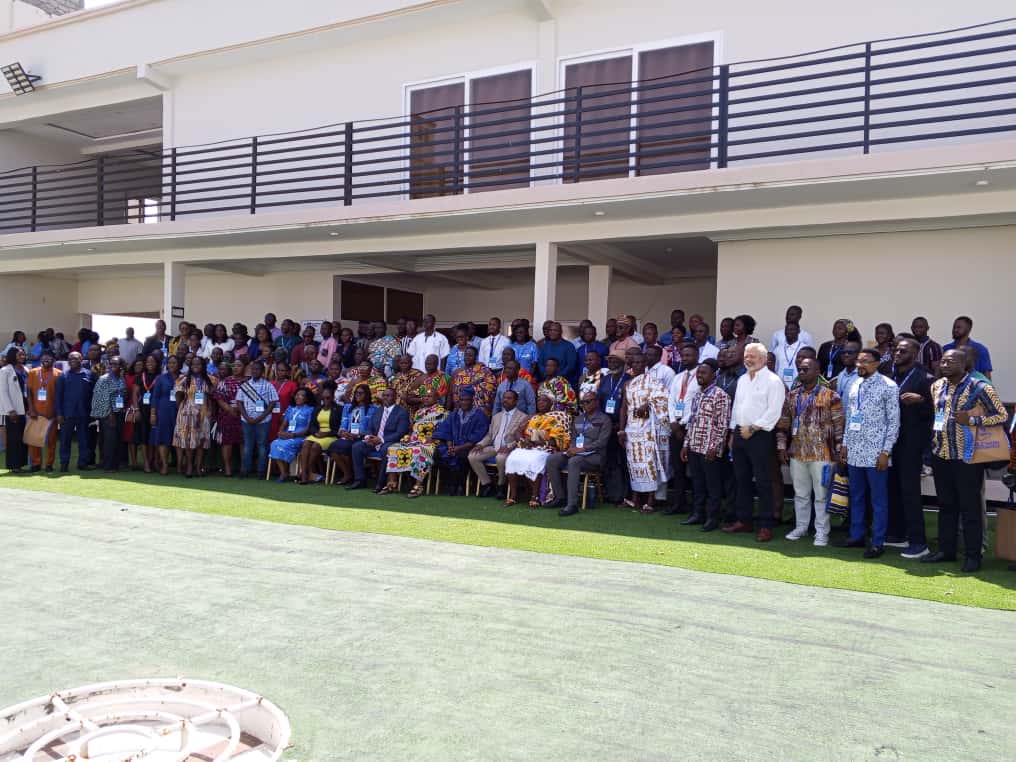
The Alliance for WASH Advocacy (A4WA) and the Ghana WASH Journalists Network (GWJN) have presented a new research report revealing persistent gaps in water, sanitation and hygiene (WASH) services in Ghana’s orphanages to members of the Coalition of NGOs in Water, Sanitation and Hygiene (CONIWAS) at the ongoing MOLE Conference.
The presentation, delivered during one of the key technical sessions of the country’s foremost WASH policy dialogue platform, highlighted serious risks facing children in care homes due to inadequate investments in WASH infrastructure and maintenance.
The report, funded by the Roddenberry 1+ Foundation, assessed 11 children’s homes across the Greater Accra, Central and Eastern Regions. It found that although some facilities have made progress, many continue to battle irregular water supply, poor sanitation facilities, and limited hygiene resources.
Major Findings
According to the study, 45.5 percent of the homes rely on boreholes and another 45.5 percent on pipe-borne water, while one facility depends on sachet water as its main supply. Although most homes report that their water sources are protected from contamination, interruptions caused by unpaid utility bills often disrupt access.
The sanitation assessment showed that 72 percent of toilet facilities are functional, but 27.3 percent are shared with outsiders, which compromises safety and hygiene. Handwashing services are available in many facilities, with 90 percent reporting consistent availability of soap and water.
While most orphanages have waste disposal systems, the report warns that sustainability remains a challenge, especially where maintenance depends on donor visits and occasional community support.
Funding Gaps Undermine Progress
The research found that only 55 percent of surveyed homes have dedicated budgets for WASH activities, and even then, most allocate between zero and five percent of their total funds to such services. Government support was cited as the least reliable funding source, with only 9.1 percent of homes counting on state financing.
Although leadership commitment within the homes is generally strong, the study notes that inadequate funds weaken the positive impact of internal monitoring and supervision systems.
Urgent Call to Action at MOLE
Presenters from A4WA and GWJN used the platform to call on government institutions, especially the Ministry of Gender, Children and Social Protection and the Department of Social Welfare, to prioritise WASH in orphanages and ensure predictable funding.
They also appealed to development partners, private sector actors, faith-based organisations and philanthropists to support upgrades to WASH infrastructure and adopt long-term partnerships with children’s homes.
“Every child in a care home deserves safety, dignity and a healthy environment. Access to clean water and decent sanitation is a right, not a privilege,” the report stressed.
CONIWAS Welcomes Findings
CONIWAS members at the MOLE Conference applauded the study for providing new evidence to guide advocacy and targeted interventions. They noted that the findings underscore the need for stronger accountability, better budgeting, and sustained investments to help Ghana meet Sustainable Development Goal 6.
A4WA and GWJN say they will intensify national advocacy and public sensitisation, including the use of global hygiene awareness days, to rally support for improved WASH services in Ghana’s orphanages.By Samuel Asamoah

